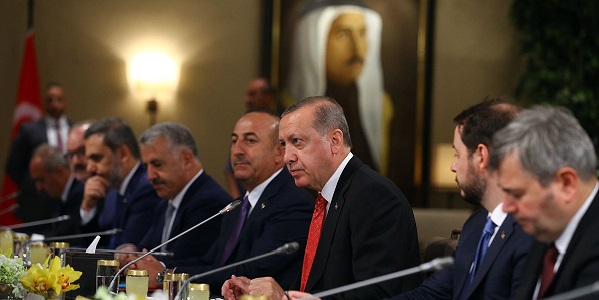Erdogan in Amman, but what Jordan really needs?
Agosto 27, 2017

Amer Al Sabaileh
Director of Security Languages - Senior political and security analyst
During his recent visit to Jordan, Turkish President Erdogan spoke of the Jordanian role in Jerusalem. However, he did not mention the Hashemite custodianship over the holy sites, which is interesting given the perceived Turkish support of the Hashemite custodianship of al Aqsa Mosque.
Erdogan’s visit comes at a time where Jordan is drifting from its strategic alliances with Saudi Arabia, UAE, Egypt and Bahrain. This drift is particularly stark in dealing with the Muslim Brotherhood, as these allies are taking steps to list the organization as a terrorist group while they are coming to power in municipality elections across Jordan. Of particular note is in the city of Zarqa, which represents a base of the radical Islamic doctrine. Any perceived support or even lack of opposition to the Brotherhood could send negative messages to Arab countries while edging closer to the Turkish government.
Turkey’s regional strategic position currently faces several major challenges. Firstly the dynamics in Syria have turned against them while the US is positioning ever closer to the Kurds and the potential for an independent state. Losing positioning in Syria is one thing, but the potential for Kurdish independence is a clear territorial threat to Turkey. In addition, Erdogan’s major ally in the Muslim Brotherhood are being targeted by the Arab countries and increasingly isolating Turkey politically, especially when combined with their supportive position on Qatar.
Erdogan is clearly seeking engagement in Jordan to counter the isolation from the rest of the Arab countries. For Jordan, this may well be the breaking of the ice for a traditionally lackluster relationship with Turkey. What we must be careful of in this though is that we do not send the wrong message to our Arab allies, and trigger isolation from them as well.
Jordan needs to diversify its options and open communications channels and engagement with all key players in the region, including Turkey. We can leverage our geographically strategic position in the region, but it must be part of a clear strategy that outlines what we want to achieve and where we want to position ourselves.
Jordan is increasingly being isolated politically, so a clear exit strategy from the current political situation is required. It will be challenging to rebuild ties with Syria and Iraq, but that is key given the shared borders. The deterioration of relations with Israel is also a serious challenge that must be addressed, as is the relationship with Saudi Arabia, which continues to head in the wrong direction.
With all the challenges that Jordan faces, what is needed is a new progressive vision that includes serious changes. Jordan needs a new direction and key to this is more credible people in the political system, as new policies are unlikely with old faces.
Dr. Amer Al Sabaileh
Tags
What's Your Reaction?
Excited
0
Happy
0
In Love
0
Not Sure
0
Silly
0
Amer Al Sabaileh
Director of Security Languages - Senior political and security analyst

